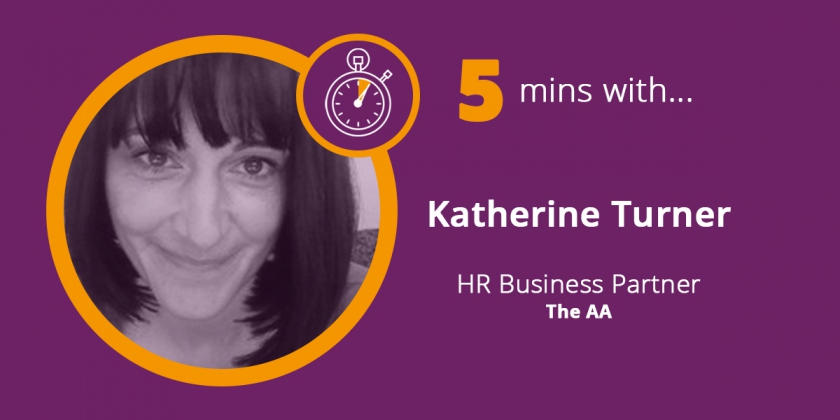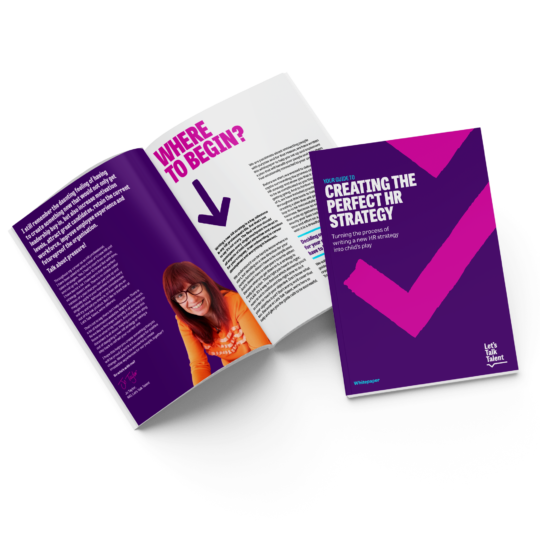We continue our ongoing series of 5 minute discussions with HR leaders with Katherine Turner, the HR Business Partner at The AA. We talk about her career to date, key skills she thinks you need to get ahead in HR and what she’d like to change about HR.
What is your HR background?
I started as an administrator in a recruitment office in my mid 20’s, then moved to a different company into an HR Administrator role, learning how to draft contracts, take minutes, answering queries etc. Then I was fortunate enough to undertake my CPP and CIPD qualifications with the support of my employer at the time and was subsequently promoted to HR Advisor and ultimately junior HR Business Partner.
I think it’s so important and beneficial to work your way up and understand the core basics of HR before progressing.
What does your HR Business Partner role at the AA entail?
A varied generalist role working with a number of business areas and approximately 350 employees, covering all elements of HR including recruitment, talent & succession, engagement, employee relations, organisational design, learning & development.
I like that I can plan out my day and then something happens which throws it all up in the air, you have to think and work quickly, being adaptable and flexible. My role is busy, challenging, fun and rewarding, working with some brilliant and clever people.
What’s the biggest difference you’ve made in your career?
As a relatively still inexperienced HR Business Partner I was involved many years ago in a significant redundancy programme at a previous employer. I was thanked by a number of the directly affected employees involved for my support and the way it had all been handled. To get this feedback from individuals who are being told they are losing their jobs and livelihood I found extremely gracious and moving and it meant a lot.
It really shows the importance of how we all treat the people that we work with and the values we want to adhere to, regardless of the task in hand.
What is your proudest moment working in HR?
Not a specific one highlight, but instead it is always when I have received thanks and positive feedback for my involvement and contribution from the business areas that I work with. Also when you can see a manager developing and learning through coaching I have done with them.
If you could change one thing in HR now, what would it be?
There can still sometimes be a perception that HR will only hinder and not help the business do what they need to do.
All of us in HR still need to work hard to break this down, showing that we play an active and valuable role i.e. constructively challenging, introducing other unthought options, playing devil’s advocate etc, ultimately still working to enable delivery of strategy. Yet equally always conscious of how we treat people, best practice and the law.
How do you tailor your approaches for different business units, stakeholders, leadership teams?
By firstly getting to know the people within the teams, their personalities and ways of working and secondly, knowing and understanding their business goals & priorities.
Making time to build strong working relationships and showing that you have the business acumen and understanding to be a competent and key business partner. I need to flex many times during a day depending on who I am working with, as I can be speaking with an Exec member from one function and then the next discussion is with a team leader in different team, so it’s this understanding and awareness of people and business that is key in making this achievable.
What do you think are the 3 key skills that make a successful HR Business Partner?
Relationship skills, delivery and pragmatism.
What would you tell your 21 year old self that you wished you had known about a career in HR?
That being in HR typically means that you often have to spend more time working on the more negative activities e.g. managing under performance. But equally this can give opportunities to get behind what is happening and why and look at what can be done proactively to address things to prevent them happening in the first place e.g. development, process, trends etc.

